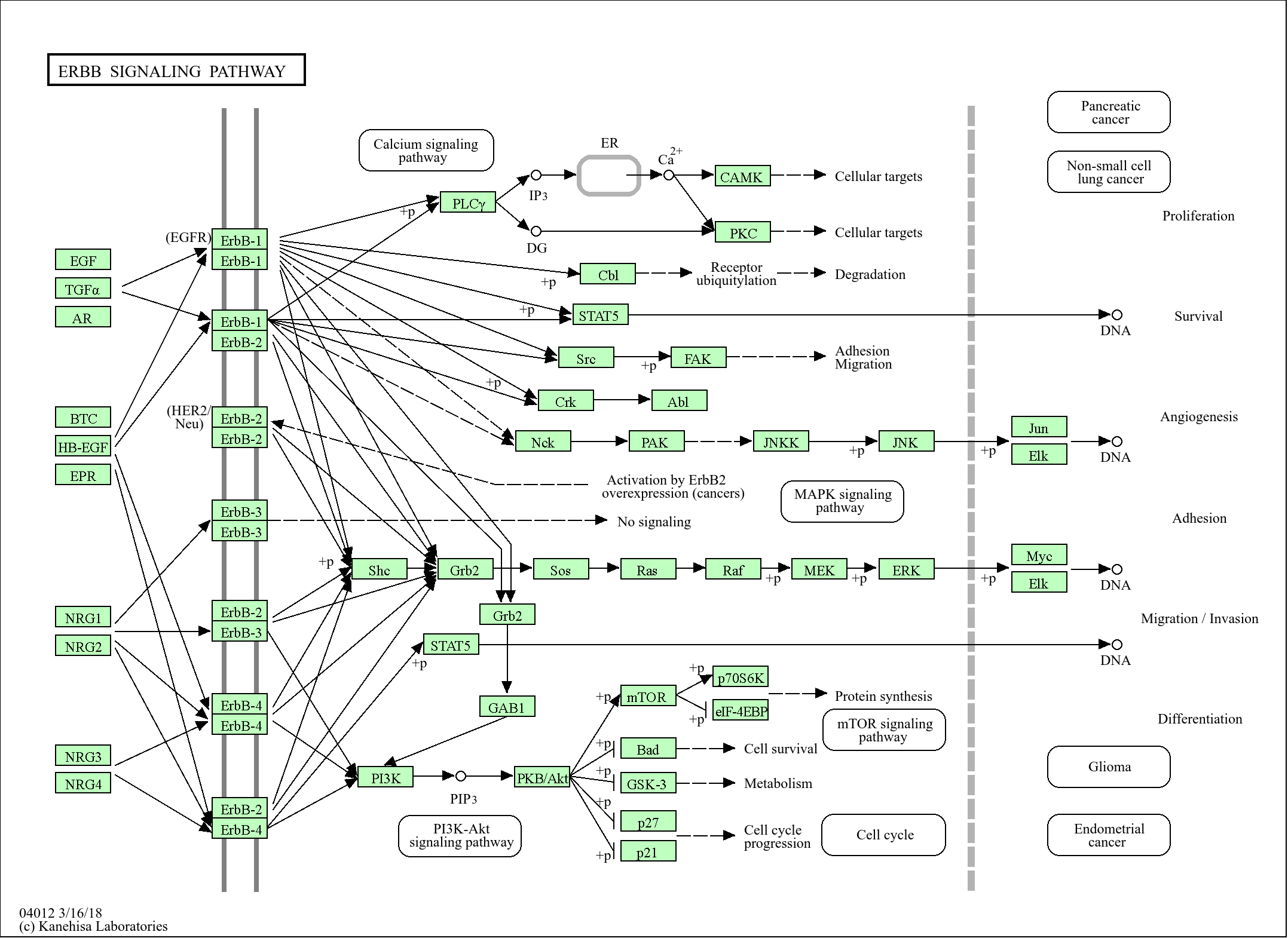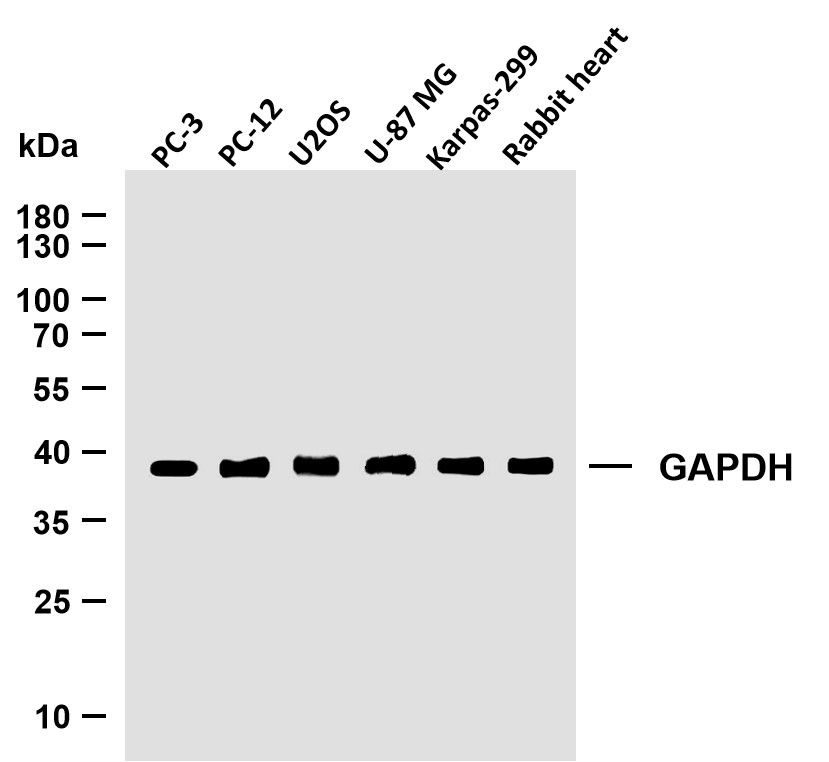
Catalog: YP0915
Size
Price
Status
Qty.
200μL
$600.00
In stock
0
100μL
$340.00
In stock
0
50μL
$190.00
In stock
0
Add to cart


Collected


Collect
Main Information
Target
CHOP
Host Species
Rabbit
Reactivity
Human, Mouse
Applications
WB, IHC, IF, ELISA
MW
19kD (Observed)
Conjugate/Modification
Phospho
Detailed Information
Recommended Dilution Ratio
WB 1:500-1:2000; IHC 1:100-1:300; IF 1:200-1:1000; ELISA 1:20000; Not yet tested in other applications.
Formulation
Liquid in PBS containing 50% glycerol, 0.5% BSA and 0.02% sodium azide.
Specificity
Phospho-CHOP (S30) Polyclonal Antibody detects endogenous levels of CHOP protein only when phosphorylated at S30.The name of modified sites may be influenced by many factors, such as species (the modified site was not originally found in human samples) and the change of protein sequence (the previous protein sequence is incomplete, and the protein sequence may be prolonged with the development of protein sequencing technology). When naming, we will use the "numbers" in historical reference to keep the sites consistent with the reports. The antibody binds to the following modification sequence (lowercase letters are modification sites):VLsSD
Purification
The antibody was affinity-purified from rabbit antiserum by affinity-chromatography using epitope-specific immunogen.
Storage
-15°C to -25°C/1 year(Do not lower than -25°C)
Concentration
1 mg/ml
MW(Observed)
19kD
Modification
Phospho
Clonality
Polyclonal
Isotype
IgG
Related Products
Antigen&Target Information
Immunogen:
The antiserum was produced against synthesized peptide derived from human CHOP around the phosphorylation site of Ser30. AA range:15-64
show all
Specificity:
Phospho-CHOP (S30) Polyclonal Antibody detects endogenous levels of CHOP protein only when phosphorylated at S30.The name of modified sites may be influenced by many factors, such as species (the modified site was not originally found in human samples) and the change of protein sequence (the previous protein sequence is incomplete, and the protein sequence may be prolonged with the development of protein sequencing technology). When naming, we will use the "numbers" in historical reference to keep the sites consistent with the reports. The antibody binds to the following modification sequence (lowercase letters are modification sites):VLsSD
show all
Gene Name:
DDIT3
show all
Protein Name:
DNA damage-inducible transcript 3 protein
show all
Other Name:
DDIT3 ;
CHOP ;
CHOP10 ;
GADD153 ;
DNA damage-inducible transcript 3 protein ;
DDIT-3 ;
C/EBP-homologous protein ;
CHOP ;
C/EBP-homologous protein 10 ;
CHOP-10 ;
Growth arrest and DNA damage-inducible protein GADD153
CHOP ;
CHOP10 ;
GADD153 ;
DNA damage-inducible transcript 3 protein ;
DDIT-3 ;
C/EBP-homologous protein ;
CHOP ;
C/EBP-homologous protein 10 ;
CHOP-10 ;
Growth arrest and DNA damage-inducible protein GADD153
show all
Background:
This gene encodes a member of the CCAAT/enhancer-binding protein (C/EBP) family of transcription factors. The protein functions as a dominant-negative inhibitor by forming heterodimers with other C/EBP members, such as C/EBP and LAP (liver activator protein), and preventing their DNA binding activity. The protein is implicated in adipogenesis and erythropoiesis, is activated by endoplasmic reticulum stress, and promotes apoptosis. Fusion of this gene and FUS on chromosome 16 or EWSR1 on chromosome 22 induced by translocation generates chimeric proteins in myxoid liposarcomas or Ewing sarcoma. Multiple alternatively spliced transcript variants encoding two isoforms with different length have been identified. [provided by RefSeq, Aug 2010],
show all
Function:
Disease:A chromosomal aberration involving DDIT3 is found in a form of malignant myxoid liposarcoma [MIM:126337]. Translocation t(12;16)(q13;p11) with FUS.,Function:Inhibits the DNA-binding activity of C/EBP and LAP by forming heterodimers that cannot bind DNA.,similarity:Belongs to the bZIP family.,similarity:Contains 1 bZIP domain.,subunit:Heterodimer.,
show all
Cellular Localization:
Cytoplasm . Nucleus . Present in the cytoplasm under non-stressed conditions and ER stress leads to its nuclear accumulation. .
show all
Tissue Expression:
Muscle,Skeletal muscle,
show all
Research Areas:
>>MAPK signaling pathway ;
>>Protein processing in endoplasmic reticulum ;
>>Apoptosis ;
>>Non-alcoholic fatty liver disease ;
>>Alzheimer disease ;
>>Parkinson disease ;
>>Amyotrophic lateral sclerosis ;
>>Prion disease ;
>>Pathways of neurodegeneration - multiple diseases ;
>>Transcriptional misregulation in cancer ;
>>Lipid and atherosclerosis
>>Protein processing in endoplasmic reticulum ;
>>Apoptosis ;
>>Non-alcoholic fatty liver disease ;
>>Alzheimer disease ;
>>Parkinson disease ;
>>Amyotrophic lateral sclerosis ;
>>Prion disease ;
>>Pathways of neurodegeneration - multiple diseases ;
>>Transcriptional misregulation in cancer ;
>>Lipid and atherosclerosis
show all
Signaling Pathway
Cellular Processes >> Cell growth and death >> Apoptosis
Human Diseases >> Cancer: overview >> Transcriptional misregulation in cancer
Human Diseases >> Neurodegenerative disease >> Alzheimer disease
Human Diseases >> Neurodegenerative disease >> Parkinson disease
Human Diseases >> Neurodegenerative disease >> Amyotrophic lateral sclerosis
Human Diseases >> Neurodegenerative disease >> Prion disease
Human Diseases >> Neurodegenerative disease >> Pathways of neurodegeneration - multiple diseases
Environmental Information Processing >> Signal transduction >> MAPK signaling pathway
Reference Citation({{totalcount}})
Catalog: YP0915
Size
Price
Status
Qty.
200μL
$600.00
In stock
0
100μL
$340.00
In stock
0
50μL
$190.00
In stock
0
Add to cart


Collected


Collect
Recently Viewed Products
Clear allPRODUCTS
CUSTOMIZED
ABOUT US
Toggle night Mode
{{pinfoXq.title || ''}}
Catalog: {{pinfoXq.catalog || ''}}
Filter:
All
{{item.name}}
{{pinfo.title}}
-{{pinfo.catalog}}
Main Information
Target
{{pinfo.target}}
Reactivity
{{pinfo.react}}
Applications
{{pinfo.applicat}}
Conjugate/Modification
{{pinfo.coupling}}/{{pinfo.modific}}
MW (kDa)
{{pinfo.mwcalc}}
Host Species
{{pinfo.hostspec}}
Isotype
{{pinfo.isotype}}
Product {{index}}/{{pcount}}
Prev
Next
{{pvTitle}}
Scroll wheel zooms the picture
{{pvDescr}}



















